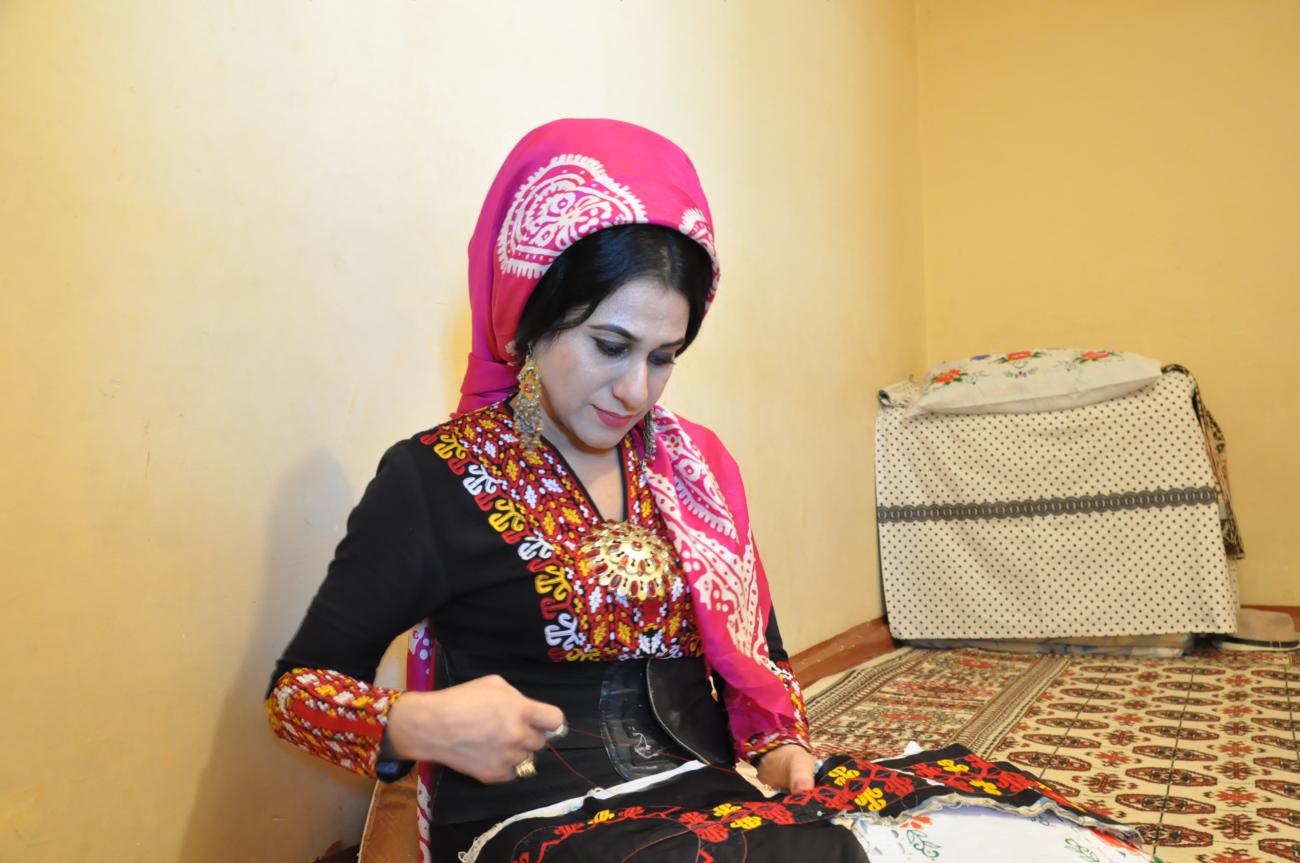Creating an inclusive environment for people like Lachyn and other vulnerable populations where they can benefit from quality community-based social services is what the Government of Turkmenistan and the United Nations are striving to achieve within the framework of the recently launched UN Joint Programme named “Improving the system of social protection through the introduction of inclusive quality community-based social services.” The Ministry of Labour and Social Protection of Population of Turkmenistan is a lead national partner and there are four partnering UN agencies, namely UNICEF, UNDP, UNFPA and UNODC. The project aims to reform the social protection system of Turkmenistan by developing a new model of social service delivery that is adapted to the national context, strengthening the work force for delivering community-based social services, and strengthening legislative and regulatory framework to introduce a new model to the social protection system of Turkmenistan.
“Despite having a severe disability, I managed to raise my son alone who goes to an elementary school now. As a child, I had to spend many years in the boarding school for children with disabilities apart from my family. I still remember the painful experience of leaving my family,” recalls Lachyn.
Lachyn, one of the many children in the family, could have had a different story if she and her family had an opportunity to use inclusive community-based social services. Just like Lachyn, many other children with disabilities, elderly persons living alone and people with disabilities are more at risk of institutionalization, which means they have to live in specialized institutions under a full state support.
“I receive allowance for disability, but as a single mom, I need to attract more income, which I do by embroidering national dresses. Young women love my work, but I cannot spend much time on this because of my back pain”.
Residential care and cash benefits do not solve most of the social issues vulnerable people face day-to-day. International experience in social work shows that inclusive community-based social services empower vulnerable groups to address the challenges they face and enable them to lead independent lives in their communities.
Within the framework of the Joint Programme, 45 newly hired social workers and representatives of allied workforce, such as police officers, teachers, and health workers will be trained on social work foundational competencies. In addition, those social workers will go through the advanced and specialized training on social work and social services. Moreover, social work managers and potential social service providers from non-governmental and governmental organizations will also receive training on foundational competencies and training on issues related to social work management and administration. After analysis of the existing social services, a new model of social service delivery will be developed in Turkmenistan and its key elements will be tested. The Joint Programme will also reinforce legislative framework to facilitate the introduction of new social services that are focused on personal care and empowerment of social service beneficiaries, such as Lachyn, to lead independent lives.
“I believe in the bright future for myself and my son. I want to earn more for our living, I want to have my own apartment and see my son going to a university. Moreover, my passion for singing and dancing inspired many people like me to believe in their abilities and strive to improve their lives,” Lachyn shares her hopes for future.
Reforming the social protection system of Turkmenistan in order to improve the life quality of beneficiaries, such as Lachyn, will create opportunities for many other vulnerable populations. UN agencies along with their national partners will strengthen the work force for delivery of community-based social services and the related legislative and regulatory framework to introduce new model of social services to the social protection system of Turkmenistan.








